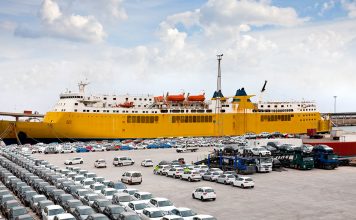The 2008 global economic crisis continues to have a huge impact on the tyre industry in Kenya even as a weak shilling, piracy in the Horn of Africa and the high demand by China for raw materials exert pressure on tyre prices.
“Many tyre manufacturers shut down their plants during the financial crisis and so are playing catch up even today,” says Micky Bassi, a director at Tyremasters Limited, a Kenya Top 100 company. “Supply is still way behind demand and with manufacturers unable to cater for everybody, we have to be careful and plan way ahead to ensure we get the supplies we need.”
Usually, it takes 90 days for confirmed shipment to arrive from suppliers overseas. Sometimes it takes as long as six months and the company doesn’t always get what it wants. “Tyre manufacturers were hoping the situation would stabilise by March this year but it didn’t happen,” says Mr Bassi.
The increasing demand by China for raw material is another challenge. The country’s need for steel, which has starved other markets, is seen in rubber as it buys huge qualities of the commodity. Piracy in the Horn of Africa has resulted in ships using alternative routes and incurring higher insurance costs, which are passed on to clients. All these factors have contributed to the escalating cost of tyres.
“At the moment tyre prices in Kenya are changing every 15-20 days. We can absorb small price changes but a level reaches when we have to pass on the increasing cost to consumers,” says Mr Bassi.
“This upward trend is expected to continue until worldwide supply stabilises.”
Tyremasters has been in the business of selling tyres (both retail and wholesale) since the 1980s. The company started out as agents for Firestone EA, which dominated the market at the time. Eight years ago the company became agents for Cooper Tyres, a popular American brand. Today, it has a large portfolio of brands including those from Sameer Africa (Yana, Bridgestone, Dunlop and Hankook), Michelin, Goodyear, Pirellli, Apollo, Kumho and JK tyres.
Liberalisation of the industry in the 1990s created a huge market for grey products — imported tyres that enter the market without paying import duty and tax thereby making them cheaper. Tyremasters has survived by maintaining uncompromising quality at an affordable price backed up by good service. “We also built good relationships with customers,” says Mr Bassi.
The company’s client mix includes walk-in clients, corporates and commercial vehicle owners. The bulk of its revenues come from commercial tyres and light truck tyres especially Sameer Africa brands.
The company, which has 18 employees has six agents in various towns in Kenya and two in Arusha and Dar es Salaam in Tanzania to cater for its clients in the region. It is also trying to increase its presence in the Uganda market.
Tyremasters is a family owned business and was started by Mr Bassi’s father, Parminder Singh Bedi, in 1984. Mr Bassi came into the business nine years ago. Until then, he was running his own security company.
“My brother was by then already involved in the tyre business but he later migrated to Canada leaving me and my father to continue running it,” says Mr Bedi. “I run the day-to-day operations while my father mostly plays an advisory role and his experience in the industry has been valuable to me. My brother is semi-retired but still takes an active interest in the business.”
Professional managers
He admits that juggling two businesses — the family tyre business and his own security company — is a challenge.
“I am based at Tyremasters and have professional managers running the security company but still make time to know what is going on every day,” he says. The security company deals in supply and installation of security products like electric fencing, alarms, razor wire and so on.
Mr Bassi has a Bachelor’s degree in business systems from Bowling Green State University in Ohio, US, and is passionate about cars. “It’s always interesting to see how new technology is coming about, what new tyres are in the market and what their capabilities are,” he says.



![Top 20 Used Cars to Avoid Buying in Kenya – [PHOTOS]](../../../blog/wp-content/uploads/2013/11/top-used-unreliable-cars-to-avoid2-80x60.jpg)



![Here are some of the best tuned cars in kenya by state of the art garages [PHOTOS]](../../../blog/wp-content/uploads/2013/11/29402_10151301757042065_340470732_n-e1384498044289.jpg)
![Top 20 Used Cars to Avoid Buying in Kenya – [PHOTOS]](../../../blog/wp-content/uploads/2013/11/top-used-unreliable-cars-to-avoid2-100x70.jpg)






